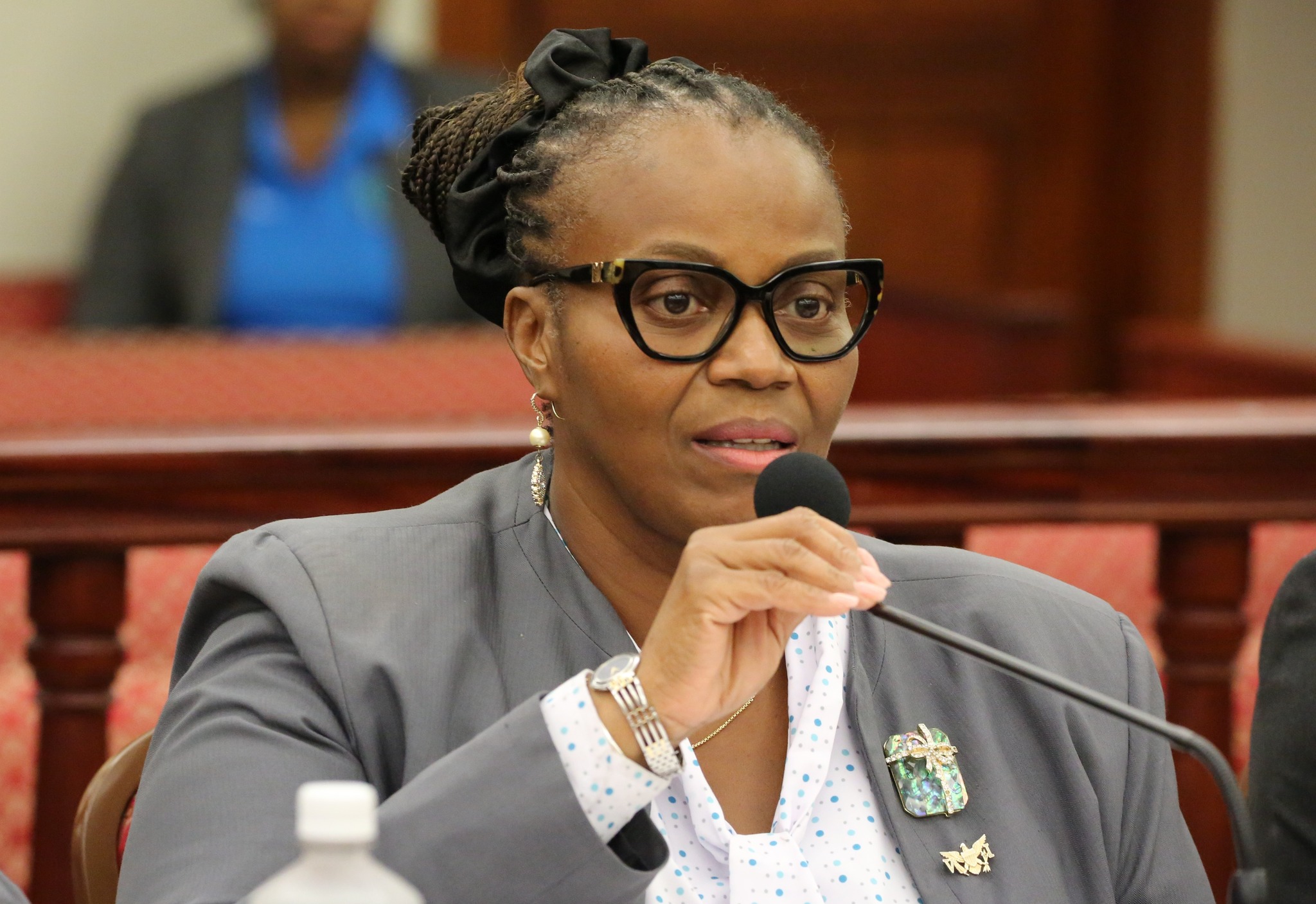
A bill regarding medical parole passed the Homeland Security, Justice and Public Safety Committee in spite of objections from the V.I Bureau of Corrections. The bill the BOC Director Wynnie Testamark studied may not have been initially the same substitute bill the committee approved.
Bill 35-0045 allows terminally ill, permanently incapacitated or geriatric prisoners to apply for early release without supervision afterward. The prisoner, family, the BOC or a designee can make the request if it is determined the inmate does not pose a threat to himself or others. The program doesn’t apply to prisoners convicted and sentenced to imprisonment without the possibility of parole.
The bill, sponsored by Sen. Franklin Johnson, defines a geriatric prisoner as one over the age of 65 who suffers a chronic, life-threatening illness or serious age-related medical condition that requires assistance with daily life functions. A non-medical geriatric parole release is also available as long as a residency plan is provided.
The bill calls for the V.I. Parole Board to make the release decisions and directs the Bureau of Corrections to create an application that includes the prisoner’s plan for residence and medical care.
Testamark said she objects to the bill for several reasons. She pointed out that inmates do not have a right to parole and those who are not citizens cannot take residency in the United States if they were given a medical parole.
Additionally, Testamark said the bill undermines her and the governor’s authority. As it stands now, the director and a psychiatrist/psychologist make recommendations for release. They are the “gatekeepers,” she said. Also, the governor can and does grant parole.
“As stated, the amended bill, I still do not support it. I feel that it needs more work. I feel that all of the stakeholders need to be brought to the table to have more robust discussion,” she said.
Usually, an inmate must serve one-third of their time to be recommended for release to the parole board and those serving time for rape or crimes with guns have to serve their minimum time before they can be considered for release.
Dennis Howell, chairman of the V.I. Parole Board, wants the change in the law to allow terminally ill inmates to be released. However, he doesn’t want the board to decide who goes free. The bill is needed, but he recommended the committee “clean it up.”
“It is time. We must move this bill forward,” Howell said.
Dr. Lena Callwood, medical director at the John Bell Adult Correctional Facility, said she also does not support the bill. Inmates should serve the time for their crimes, she said.
Johnson, who served more than 20 years with the BOC, spoke emotionally in support of his bill. He said inmates deserve to spend their last days in comfort with their loved ones. He also pointed out that the inmates don’t qualify for Medicare, Medicaid and Social Security, so the cost of their healthcare falls on the V.I. government.
The senator added the bill does not take the director or governor out of the process.
Several senators expressed concerns over the legislation. Sen. Angel Bolques said an abundance of terminally ill releases could overcrowd the healthcare facility. The inmates could not work due to their illnesses nor find housing. Bolques asked about the cost of housing the terminally ill at the correctional facility, but no one had an answer. He was the only senator to vote against the bill.
Sen. Javan James said 40 states have similar provisions in their laws regarding parole.
Sens. Dwayne DeGraff and Alma Francis-Heyliger both said they were concerned for the victims of the crimes. Their families should be taken into consideration and participate in the appeals process, they agreed.
Shortly before the vote to move the bill forward to the Rules and Judicial Committee, Johnson said he wanted to work with Testamark to write a bill she would support. She said again that all stakeholders needed to be considered.
Under questioning from senators, Testamark told the committee there are 178 prisoners being held in off-island facilities, some in mental health care units. There are 248 prisoners and detainees at the St. Croix facility. Twelve inmates are over the age of 65 but only one is terminally ill and eligible for release under the new bill, she said.


